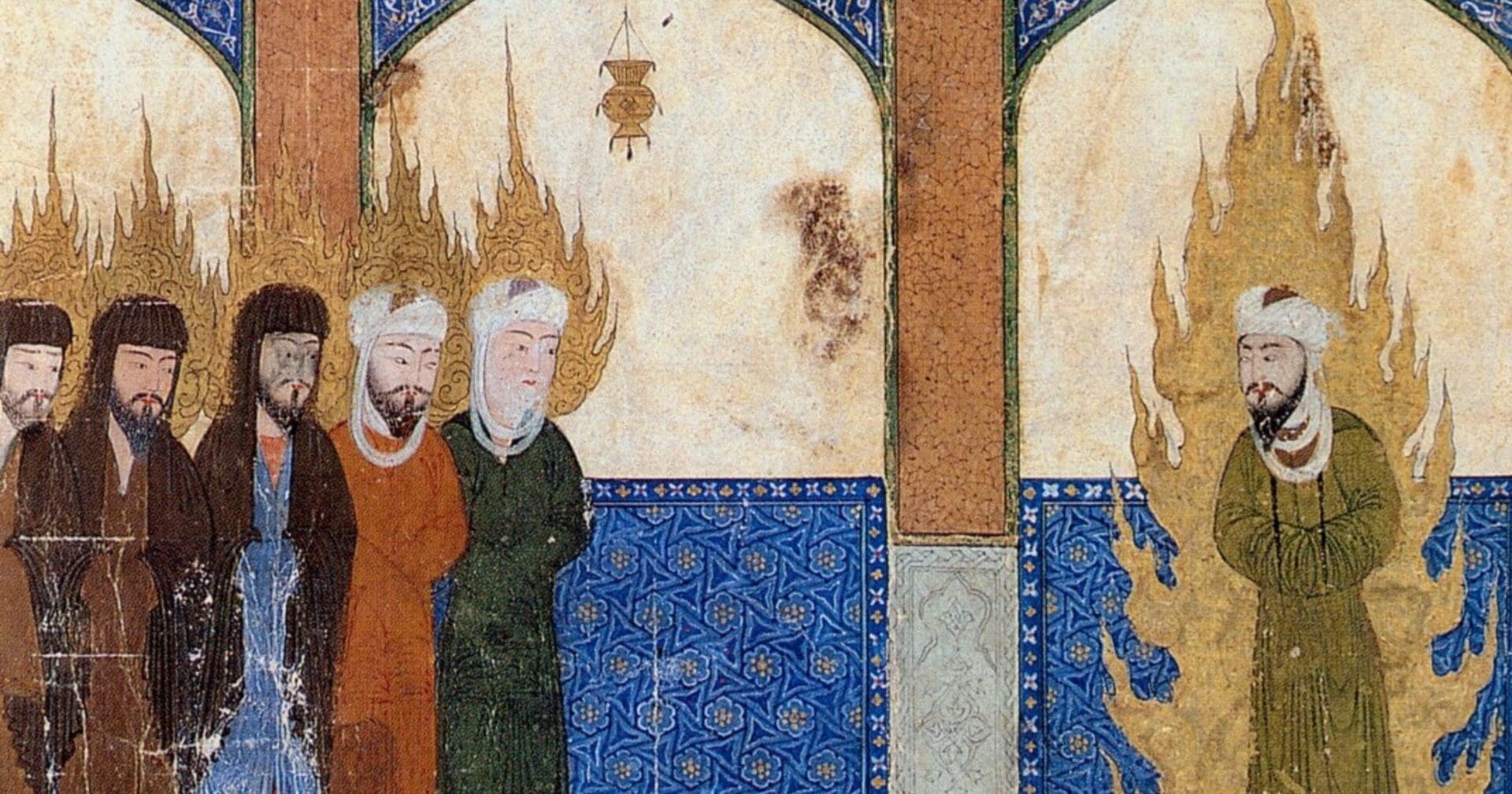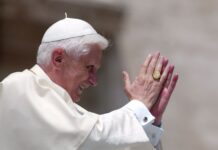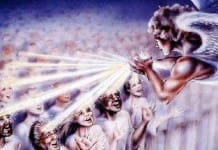In the year 610 A.D. a man named Muhammad began publicly preaching supposed revelations received from the Angel Gabriel, sparking a movement we know today as Islam. However, historical attitudes and beliefs about the religion are not the same as we know them today. You might be surprised to learn that Medieval Christendom actually condemned Islam as a Christian heresy, a thought still surviving today.
“Many false prophets will arise and deceive many; and because of the increase of evildoing, the love of many will grow cold. … they will perform signs and wonders so great as to deceive, if that were possible, even the elect.” – Matthew 24:11-12,24
During the Early Middle Ages following Islam’s proliferation, Christendom largely viewed Islam as a Christian heresy and Muhammad as a false prophet. By the end of the Late Middle Ages, consensus had Islam grouped with paganism, and viewed Muhammad as inspired by Satan. Public opinion only shifted slightly after the Islamic empires ceased to be an acute military threat to Europe.
It is worth noting that Muhammad’s uncle was an Assyrian Christian monk by the name of Sergius who held heretical views including elements of Arianism, Nestorianism, and possibly Gnostic Nasorean. It was from this relative that Muhammad likely was exposed to the Old and New Testament.
The earliest proponent of this position of Islam as a Christian heresy was Saint John Damascene, a man from an epicenter of Islamic expansion in Damascus who was witness to how Islam was molding and adapting itself in its nascent form. This is evidenced in his writings where he quotes a surah that is not generally present in today’s extant Quran.
In his dogmatic work Fountain of Knowledge, Saint John Damascene devotes a portion of the writing to a section titled Concerning Heresy. While a majority of its 101 chapters addresses various heresies succinctly in a few short lines, the final chapter is comprised of many paragraphs devoted to the “Heresy of the Ishmaelites,” the first Christian apologetic refutation of Islam.
In this cornerstone work of Christian apologetics on Islam, Saint John Damascene is first to call Muhammad a “false prophet” and the “Antichrist,” proclaiming he devised his own heresy.
“From that time to the present a false prophet named Mohammed has appeared in their midst. This man, after having chanced upon the Old and New Testaments and likewise, it seems, having conversed with an Arian monk, devised his own heresy. Then, having insinuated himself into the good graces of the people by a show of seeming piety, he gave out that a certain book had been sent down to him from heaven. He had set down some ridiculous compositions in this book of his and he gave it to them as an object of veneration.” – Saint John Damascene, Heresy of the Ishmaelites
Taking a historical approach, Muhammad drew on second-hand Biblical accounts from some of the Christians around him in Arabia. However, these Christians were unorthodox and would be considered gnostic today. As Bible translations were often rare and poor, and because a majority of Arabian gnostic Christians didn’t recognize the Bible as Holy Scripture, Islam has its roots in Biblical misunderstandings and thus was, and still is by some, considered a Christian heresy.
Saint Thomas Aquinas in Summa Contra Gentiles noted that Mohammed drew much of his thought from altered stories and teachings from the Old and New Testaments and subsequently forbade his followers to read them.
“Lastly, no divine oracles of prophets in a previous age bore witness to him; rather did he corrupt almost all the teaching of the Old and New Testaments by a narrative replete with fables, as one may see by a perusal of his law. Hence by a cunning device, he did not commit [forbade] the reading of the Old and New Testament books to his followers, lest he should thereby be convicted of falsehood.”
In his book The Great Christian Heresies, Hilaire Belloc predicted the future rise of Islam. He also identifies the religion as a Christian heresy. Belloc states Islam began as a perversion of Christian belief, saying:
“It began as a heresy, not as a new religion….It was a perversion of the Christian religion…an adaptation and a misuse of the Christian thing.”
He calls Muhammad a heresiarch that while not a man of Catholic birth, taught heretical doctrine drawing from Catholicism.
“The chief heresiarch, Mohammed himself, was not, like most heresiarchs, a man of Catholic birth, and doctrine to begin with. He sprang from pagans. But that which he taught was in the main Catholic doctrine, oversimplified. It was the great Catholic world – on the frontiers of which he lived, whose influence was all around him and whose territories he had known by travel-which inspired his convictions.”
He evidences this by drawing the comparison between Islamic and Catholic belief, and pointing out where Islam perverses the belief to a heresy.
“Thus the very foundation of his teaching was that prime Catholic doctrine, the unity and omnipotence of God. But the central point where his new heresy struck home with a mortal blow against Catholic tradition was a full denial of the Incarnation. He taught that our Lord was the greatest of all the prophets, but still only a prophet; a man like other men. He eliminated the Trinity altogether.”
Finally, he explains how Islam is founded on simplification of true Catholic doctrines, and this simplification produced a Christian heresy.
“In other words, he, like so many lesser heresiarchs, founded his heresy on simplification…Simplicity was the note of the whole affair; and since all heresies draw their strength from some true doctrine, Mohammedanism drew its strength from the true Catholic doctrines which it retained.”
Photo credit: Public Domain via Wikimedia Commons


















I’m glad someone actually will call it out for what it actually is.
It reminded me of the YouTube videos where ex-Catholics, or Protestant preachers cite how the Catholic church is wrong & reasons they left the church – none had an accurate underdstanding of the church. Sadly, their reasons for leaving were based on misconceptions, just like Mohammed’s. Somehow, we need to do a better job of helping members & non-members learn the truth!
Sure, I do not have a problem with this article. As a reminder to all catholics, especially those that practice and worship in the the High Holy Republican Catholic Church and not the Holy Roman Catholic Church, this does not give us the right to discriminate, offend nor treat our fellow Muslims brothers and sisters poorly. What it does give us is the right to evangelize to them and share the truth.
An interesting article and gives a good account of the beginning of Islam. The problem with the religion today is that it seems stuck somewhere between the 7th and 16th centuries with manifestations of various periods between those dates. It has never refined its teachings or disciplines. The Catholic Church no longer burns heretics nor would it even if it still had the power. It also no longer automatically condemns nonbelievers to perdition. Monarchy is not the preferred civil government and in fact, the position of the Church is to have little to do with secular administration and confine itself to pronouncements on moral issues, however imperfectly set out at times. Even Orthodox Judaism differs in many respects from that of a millennia ago. Whenever there are attempts to reform Islam, as in the case of Ataturk in Turkey in 1927, it is eventually brought back to fundamentalism as with Erdogon today. Islamists cling to the belief that population increase and now mass immigration to the West will eventually achieve their goals. So far they seem to be succeeding.
I was wondering this very thing the other day because I have read the Quran and what surprised me the most were the strange way Mohammed changed the stories from the Bible-Solomon talking to ants, Jesus talking from birth, etc. I felt like Mohammed was merely retelling folk stories he may have heard from non-orthodox Christians he knew in his town or met as a merchant.
Hmmm. Well, then, drawing on your rationale, Christianity would be a Jewish heresy, yes? There’s some pretty problematic reworking of Jewish prophetic tradition by early church theologians, Paul included.
I think I see your attempt to draw a parallel. Then keeping with parallels, Judaism looked forward to a messiah…Jesus. And Christianity warned of false prophets…Muhammad. I’m curious – which early Church theologians reworked Jewish prophetic tradition?
How in the world do you make that comparison? Did you not read past the headline?
Completely wrong conclusion…. Christianity does not misconstrue Jewish tradition, unlike Islam does to Judaism and Christianity. For example, Islam claims that Jews believe that Ezra was the Son of God. That is an laughable falsity and frankly, embarrassing for Muslims. Islam DISMANTLES history and re-writes it. Christianity BUILDS UPON Judaism, it is a logical continuation of Jewish tradition.
Nailed it Rick. Christianity expands upon previously known and accepted wisdom from Gods original Word, while Islam perverts both Old and New Testament by having ends that are incompatible with the Decalogue.
Actually, Judaism did see the new followers of Jesus as a heresy. Which is why Paul and others attempted to stamp it out. However, many priests and Jewish leaders like Paul came to accept it not as a heresy but a fulfillment of their own historic faith.
If Arabian gnostic Christians did not see the Bible as Holy Scripture then I wonder what they based their beliefs upon.
I could still say that Christianity is an islamic heresy.